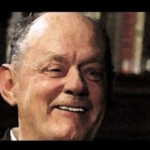During recent campus turmoil, media outlets have consistently mentioned that Jewish students are participating in the “mostly peaceful” protests. They have covered shabbat dinners and Passover seders at the protest sites. The implication is clear: if Jews are involved, how can these protests be anti-semitic? Jewish students at the protests emphasize that their faith is separate from Israel, asserting that true Jewish values are not aligned with Zionism.
This discussion highlights a long-standing issue within Judaism: there is no singular Jewish religion. While there is one Catholic church with a unified doctrine, Protestant faiths have various denominations that may split due to significant disagreements. For Jews, a formal schism is not feasible or necessary because different Jewish groups can hold vastly different interpretations.
This diversity is evident in debates about Judaism and abortion. Some Jewish individuals argue that religious teachings mandate abortion in certain situations, contending that the law should allow exemptions based on religious freedom. Others vehemently oppose this interpretation. However, under the Religious Freedom Restoration Act (RFRA), courts can assess the sincerity of beliefs but cannot dictate religious tenets.
This brings us back to the question of whether Zionism is intrinsic to Judaism. Jewish students at the protests in New York City’s Upper West Side adamantly reject this notion. Conversely, other Jewish students affirm the connection. Over 500 Jewish students at Columbia University recently signed a letter clarifying their stance on Zionism.
The letter addresses the misrepresentation of Jewish values by some individuals outside the community. It asserts that Judaism and Israel are inseparable, with Zionism serving as a manifestation of this belief. The signatories emphasize the historical and religious significance of Israel to the Jewish people.
How do the Jewish students at the protests respond to this discourse? Their reactions may vary, but one common approach is to disregard religious doctrines that conflict with contemporary values. Some congregations reinterpret or skip passages like Leviticus 18:22 on Yom Kippur to align with modern perspectives. Similarly, the connection between Judaism and Israel can be viewed through a flexible lens that accommodates evolving beliefs.
The letter also highlights the enduring presence of antisemitism throughout history, adapting to different contexts and accusations against Jews. It warns against assuming that Jewish participation in protests precludes antisemitism, citing historical instances of Jewish involvement in anti-semitic movements.
It is essential to recognize the complexities and nuances within Judaism and the diverse interpretations of religious teachings. The letter underscores the need to understand and respect the multifaceted nature of Jewish identity and beliefs.





